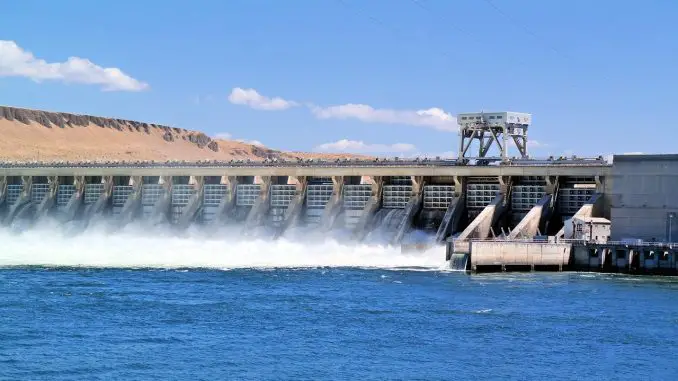
Did you know that a snowy winter throughout the country has filled the water pipes, which provides more electricity from hydropower? What are the benefits of hydropower as an energy source?
How much of our electricity comes from hydropower? We do a deep dive among the facts about one of our biggest sources of energy.
The main environmental benefits of hydropower are that it has no emissions whatsoever and therefore does not contribute to the climate impact. It is also renewable, which means it doesn’t waste any resources. In addition, it is possible to store energy in the form of a water reservoir, which means that we have electricity even in the winter when we need it best.
Hydropower is controllable, so we can produce electricity exactly when needed. This means that there is always electricity in the outlets and the right frequency in the wires. In addition, it is possible to switch off or switch on hydropower depending on how other renewable energy sources produce.
This means that when the wind blows and the sun shines, the hydropower can pause. When the wind rises and the sun goes down in clouds, hydropower can start. This means that hydropower enables the expansion of solar and wind.
The negative impact is compensated
Hydropower has been criticized for adversely affecting ecosystems around running water and making it difficult for fish to make their hikes up through rapids to play.
Ponds are obstacles to migration and ecosystems have changed from running water to lake ecosystems.
To compensate for the impact that hydropower has had on ecosystems, various efforts are being made around the country. Fortum works actively to implement projects in several places that counteract this impact. For example, dams that are no longer needed can be demolished. There is always an endeavor to find a solution that is best for the specific problem prevailing on the site. Sometimes it is about the release of fish, sometimes it is about transporting fish past power stations up to the play areas. In some places it is suitable to build fishing routes, so we do that.
The environment around the ponds and rivers would also be affected. Water levels would change in both directions.
If we removed the power plants, all cities along a river would be in danger of flooding, and you probably wouldn’t be able to live near the rivers without a buffer zone. If we also demolished all the small dams, many lakes would disappear and many summer cottage owners and permanent residents would no longer have lake land.
Benefits of hydropower
1. Renewable energy source. No fossil fuel is needed and hydropower does not waste any resources.
2. Zero emissions. Hydropower has no emissions that affect the climate.
3. Adjustable. Since we can control when we want electricity to be produced, we can choose to do it exactly when electricity is needed. It also allows us to adapt production to when other renewable energy sources are active. If solar energy and wind power are produced, hydropower can pause.
4. Enables expansion. Since hydropower covers up when solar and wind power are not produced, solar and wind power can be expanded. You can invest in solar panels and wind turbines if you know that energy can be produced even in the darkest and most windy days.
5. Storageable. Since water is stored in large reservoirs, we can ensure that we have electricity even in winter when we need it most.
Leave a Reply